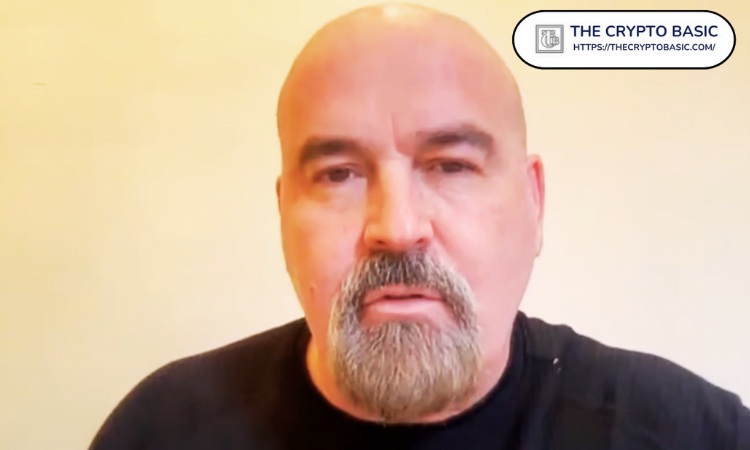Attorney Deaton shares several facts backing the merit of Ripple’s fair notice defense.
Over the past few weeks, there has been a debate about whether Ripple’s fair notice defense has merit. On March 3, the leading Silicon Valley tech company filed a supplemental letter supporting its fair notice defense in its lawsuit with the Securities and Exchange Commission (SEC).
The defendants’ fair notice defense highlighted several factors why they didn’t anticipate an enforcement action from the SEC. The points raised include the lack of clear rules for the crypto market and former SEC director William Hinman’s endorsement of Bitcoin and Ethereum as non-securities.
Deaton Provides Facts Backing Ripple’s Fair Notice Defense
Despite Ripple’s argument, some still assert that the leading blockchain company’s fair notice defense is without merit. Responding to these critics, CryptoLaw founder attorney John Deaton recently made a Twitter thread explaining why Ripple’s fair notice defense is not meritless.
According to Deaton, these critics must ignore the facts and the law to claim that Ripple’s fair notice defense is meritless.
“You can argue that it won’t ultimately prevail, but it’s not meritless,” he concluded.
Deaton noted that in June 2019, the Securities and Exchange Commission did not reject MoneyGram’s partnership with Ripple, to utilize the blockchain company’s xRapid product (XRP) in foreign exchange settlements.
“If #XRP was itself an illegal security the way the SEC now claims, why would the SEC allow this MoneyGram partnership 18 months before Clayton dropped the lawsuit on his last full day at the SEC and the very next day after meeting with @GaryGensler?” he quizzed.
Following the “SEC absurd theory” of what is an investment contract, Deaton asserted that MoneyGram’s sales of XRP through Coinbase could also be considered an investment contract with Ripple even when purchasers did not know the blockchain firm.
Deaton said the SEC did not raise dust about MoneyGram’s application to acquire and sell XRP. Instead, the securities regulator advised MoneyGram to record XRP sales as a contra expense.
In June 2019 MoneyGram told the SEC it was acquiring and selling XRP and it wasn’t an issue. In fact, we learned the SEC instructed MoneyGram how to report XRP on the books, as a contra expense.?
? In the 76 years since Howey, there’s no case where contra expense = a security. pic.twitter.com/ZFEFSQMQ66
— John E Deaton (@JohnEDeaton1) April 14, 2023
Furthermore, Deaton pointed out that the Financial Stability Oversight Council’s (FSOC) annual report, which former SEC Chair Jay Clayton signed, highlighted XRP alongside Bitcoin (BTC), Litecoin (LTC), and Ethereum (ETH).
Deaton also mentioned SEC’s Enforcement Lawyers’ Howey XRP memo as one of the merits backing Ripple’s fair notice defense. Notably, although Hinman did not mention XRP in the controversial June 14, 2018 speech, Deaton asserts that SEC’s Enforcement lawyers issued a Howey XRP memo a day before.
Even though the document is still privileged, Judge Sarah Netburn has disclosed that the SEC officials never made any recommendation at the end of the analysis.
“If SEC enforcement lawyers had determined that XRP was clearly a security, they would’ve recommended action be taken,” Deaton said.
He added if the lawyers had found that XRP was a security, they would have recommended that a “Cease and Desist letter be issued to Ripple.” Only when the company refuses to adhere to this notice will enforcement action be taken against it, Deaton asserts.
Moreover, Ripple’s CEO Brad Garlinghouse and CTO David Schwartz met with the SEC around August 2018 to discuss why Hinman never mentioned XRP in the controversial speech.
“Had the Memo found #XRP clearly a security, they could have handed it to the CEO and CTO of Ripple and said, here, read this! But they didn’t. Instead, Clayton said: ‘ok, just keep talking to the staff about it at future meetings’ or words to that effect,” Deaton said.
Another point backing the merits of Ripple’s fair notice defense is the ethics disclosure filed with the SEC by a market participant Ballard Inc. on January 1, 2020.
In the filing, Ballard informed the SEC that it should not worry about its cryptocurrency investments because it will only deal with the three top crypto assets- BTC, ETH, and XRP – generally accepted as currencies and not subject to the SEC’s regulation.
Deaton, who represents thousands of XRP holders as amicus curiae in the lawsuit, pointed out that the SEC also informed the public 60 days before charging Ripple that it has never determined the cryptocurrency as a security.
Now also consider that in October 2020 – less than 60 days before Ripple was sued – the SEC informed the public (the people it supposedly protects) that the SEC had never determined #XRP to be a security. pic.twitter.com/HyoDQZCwMY
— John E Deaton (@JohnEDeaton1) April 14, 2023
DisClamier: This content is informational and should not be considered financial advice. The views expressed in this article may include the author's personal opinions and do not reflect The Crypto Basic opinion. Readers are encouraged to do thorough research before making any investment decisions. The Crypto Basic is not responsible for any financial losses.



